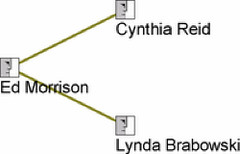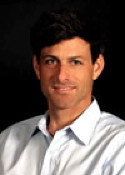
Guest post by Scott Bechtler-Levin
After spending a couple days with nearly 150 smart, network weavers at the GEO/ Monitor Institute “Growing Social Impact in a Networked World” conference (http://www.geofunders.org/networksconference.aspx), I am reminded of one of my favorite quotations:
“The more you learn, the more you realize how little you know…” (Socrates, according to Plato)
One of many ‘ah-has’ came early during the well facilitated conference. It was just an off-hand comment from June Holley that the basic building block of network weaving is the “closing of triangles”.
Here is a definition from this 2006 blog post on “Network Weaving 101” by Valdis Krebs :
“An “open triangle” is where there is an opportunity to introduce two people by the third person who knows them both — it is a triangle with one missing link like in the diagram immediately below. A “closed triangle” is where all three people know each other.”

I’ve always been fascinated by how and why some people “see” open triangles and “act” to close them – while others do not. It was good to see how different people are aligning sector culture, systems, and incentives to encourage individuals and institutions to take the extra time to magnify their impact by closing triangles. We saw evidence of it in the networking. We see it when people share documents/templates. We see it through curation and what Beth Kanter called sense making.
It is ultimately to everyone’s benefit when we see ourselves as a node within a network … and that network as a node within a larger movement.
And this collection of innovators certainly tended to see much larger and more complex “triangles” than most others. That ability to envision and view themselves as movement builders is what made this an especially rewarding gathering. People recognized that we are all knowingly stumbling through the fog of innovation – and it’s helpful to have peers help identify where the blind-alleys are located.
So the week left me appreciative of what someone called the power of the “people formerly known as the audience”. That is, we each of us contribute our small piece of what we learn and when we share it with others, we help them, ourselves and our movement. And because so many diverse perspectives were represented, we were all enriched by the insights that can only happen at the intersections of cross-subsector, cross-functional role gatherings.
How fitting, for a conference on networks.

Scott Bechtler-Levin is Co-Founder and President of IdeaEncore Network ( www.IdeaEncore.com), an online resource sharing platform that builds networks to disseminate and curate nonprofit tools / templates.
Beth Kanter is a consultant, author, influencer. virtual trainer & nonprofit innovator in digital transformation & workplace wellbeing.
